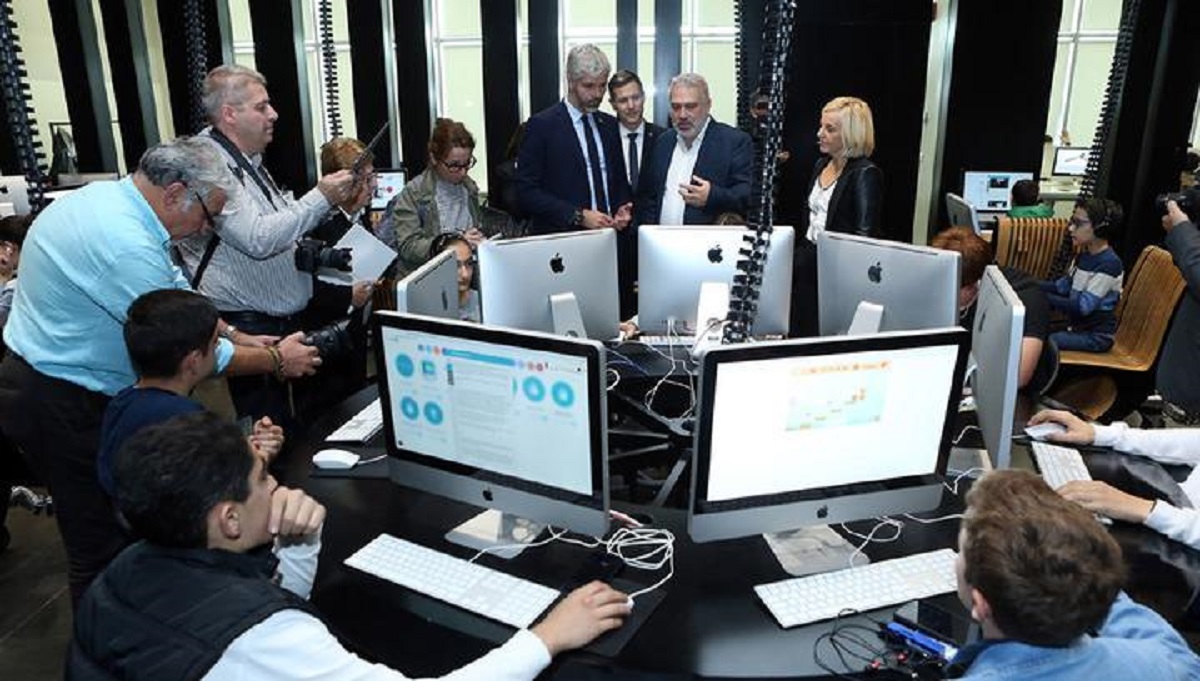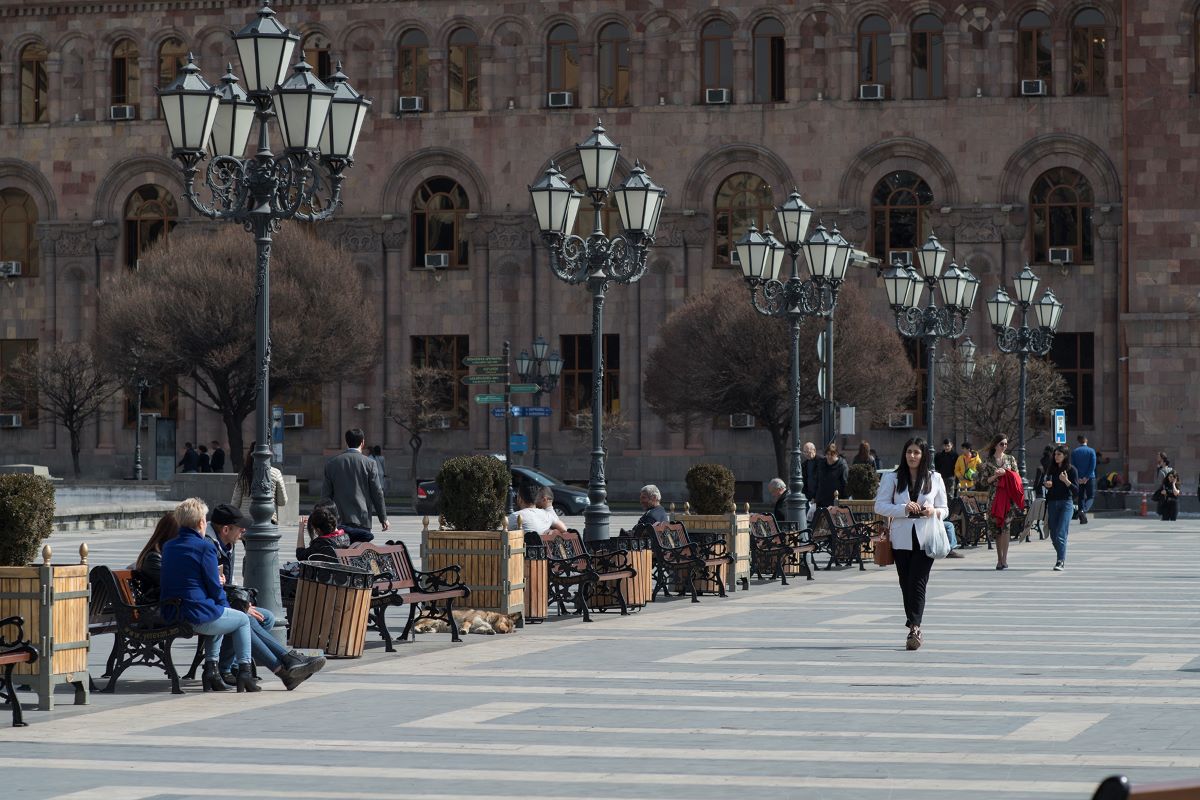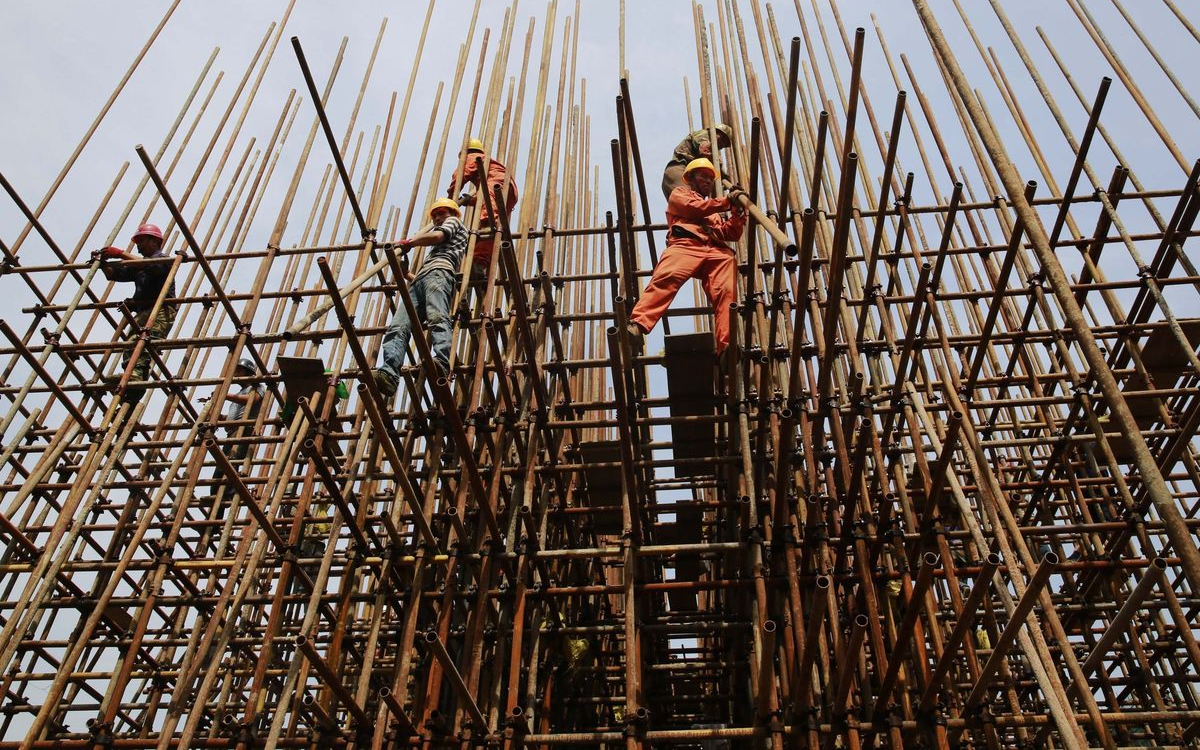Armenians begin buying shares in foreign companies: What’s behind this trend?
Armenians investing money abroad
In recent years, Armenian citizens have increasingly been purchasing shares in foreign companies. They mainly buy shares in high-tech companies with growth potential. Additionally, people are investing in real estate in Dubai, Cyprus, European countries, and the USA.
Experts attribute this trend to the accumulation of additional capital in the country, part of which is now being invested abroad.
Details about Armenian citizens’ foreign investments, as well as the situation and prospects of the local stock exchange, are discussed further.
- Fitch has maintained Armenia’s economic rating among countries with a “stable outlook”
- Armenia’s economic growth forecast: 8% with favourable conditions, 4% otherwise. Opinion
- “Geopolitical situation – one of the reasons for the decline in the number of tourists.” Opinion from Yerevan
Which is better: A bank deposit or IT company shares?
In 2022, Armen Khachatryan withdrew his savings from a local bank and decided to buy shares in a foreign IT company.
“I thought I could handle it myself because I have a good command of English and a financial education. But a friend with experience in these matters advised me to use a brokerage company to minimize potential risks,” Armen explains.
Armen, a business credit specialist working at a bank, says he wanted not only to make a profit by investing in foreign stocks but also to understand how the international investment market operates and what opportunities it offers.
“I didn’t become a millionaire in two years. But the shares of the two companies I invested my savings in have significantly increased in value. Compared to the interest I would have earned from a dollar deposit in the bank, I made ten times more,” he says.
Armen acknowledges the risks involved in investment markets. International investments, if not related to the real estate market, require certain knowledge from the investor. It’s important to keep track of political and technological events in the specific country, Armen believes. It’s equally important to follow all information related to the company.
“This changed my perspective on the world. I started reading international media publications, keeping an eye on offers from other companies, and looking for a brokerage firm in Armenia. Honestly, we have very little information, including about local company offers. It feels like the information reaches only a few hundred people,” Armen notes.
In his opinion, informational campaigns need to be organized, particularly by banks:
“People don’t know that some local banks have started involving their clients as shareholders. This information needs to be communicated to people in every possible way. Many people I ask are unaware. We still have a long way to go to develop the investment market in the country.“
Armenians investing money abroad
“Free” money
In Armenia, many people still keep their savings in banks, trusting only them. According to the Statistical Committee, as of May 2024, the volume of deposits in commercial banks in Armenia amounted to 5,861,999 million drams (about $15 billion). Compared to the same period in 2023, the volume of deposits increased by 13.9 percent.
Deposits from non-residents amounted to 1,442,228 million drams (about $3.7 billion), while deposits from residents were 4,419,771 million drams (about $11.5 billion).
60.3 percent of the deposits are in the local currency, drams. Compared to the end of May 2023, their volume increased by 19.08 percent.
39.7 percent of the deposits are in foreign currencies. Their volume increased by 9.12 percent compared to the end of May 2023.
Investing in the local market: A personal story
Grant Khachatryan, founder of YerevaNN Laboratory and head of a research group at Yerevan State University (YSU), has some experience investing in the local market. He says his motivation isn’t profit but revitalizing the stock exchange in Armenia.
Grant bought shares in an Armenian bank and has already received dividends:
“The amount is small, of course. But for me, it’s important to encourage people to invest in the local market. This is crucial for market development and attracting new shareholders.”
Grant believes that over time, the local market will become more active, with more players, and people won’t need to look for opportunities abroad:
“To illustrate my position and what I’m doing: I might gift a couple shares of a local company for their wedding. I think it’s important to encourage people to invest in local companies by setting an example.“
However, he notes that local companies are not very interested in selling their shares:
“There are many reasons, but the main ones are insufficient experience in corporate governance and the need for transparency.“
To develop and expand their businesses, companies mainly take out loans, which adds financial strain, Grant Khachatryan explains:
“They could instead sell shares and gain free funds through public investments. To do this, they need to improve management quality, operate transparently, and earn public trust.”
In recent years, some Armenian companies have taken this path, despite it being more labor-intensive and complex. For instance, in 2023, the telecommunications company Team Telecom Armenia issued 40 million shares totaling more than 8 billion drams (about $21.4 million).
This is probably not the only example. However, other companies either do not publish information or work through intermediaries, often delegating the sale of shares to banks or other financial intermediaries.
Armenians investing money abroad
Economist’s opinion
After the coronavirus pandemic, all countries issued additional money, creating extra capital, explains political scientist and economist Grant Mikaelyan. The money was issued to prevent a deepening crisis, as businesses were closing, some were declaring bankruptcy, and people were losing their jobs. A significant portion of the money issued by the Central Bank of Armenia ended up in foreign companies as investments.
At the same time, in Armenia, this additional capital was further boosted by significant sums from re-exports due to sanctions imposed during the Russian-Ukrainian war.
“There is currently a trend of investing abroad, and it is gaining momentum because there is extra capital in the country. This capital is not being directed towards consumption, equipping companies, or real estate markets. Therefore, it either remains in Armenian banks as deposits or is invested abroad.
The investment market in Armenia is weak, with no competitive offerings, so people, through brokers, find profitable opportunities and buy shares abroad,” Mikaelyan explains.
According to him, Armenia’s economy benefits little from this trend. If the brokerage service is registered abroad, the likelihood of the state receiving taxes is minimal. Typically, these companies are registered in offshore zones or countries with low taxation.
Another reason for investments abroad, according to the economist, is Armenia’s security issues:
“Statements coming daily from Azerbaijan create an uncertain environment for investments in the country. The money leaving Armenia benefits other countries. At the same time, interest rates on bank deposits have become even lower than in previous years. It’s clear that people will seek investment opportunities abroad, mainly focusing on the real estate market, with less interest in purchasing shares.”
Grant Mikaelyan emphasizes that some of this money could remain in the market through government bonds or local stocks. However, there is an issue of awareness and financial literacy.
“People’s decisions are also influenced by political factors. The current situation is also the result of various economic integration processes [referring to membership in Russian-led integration initiatives, particularly the EAEU]. In the case of European integration, there would also be a capital outflow—now to European countries. This is how economics works: money flows not from developed countries to developing ones, but the other way around,” he says.
Nonetheless, the economist hopes that with the resolution of security issues, positive expectations and reliable guarantees for investments could emerge.
Armenians investing money abroad






















